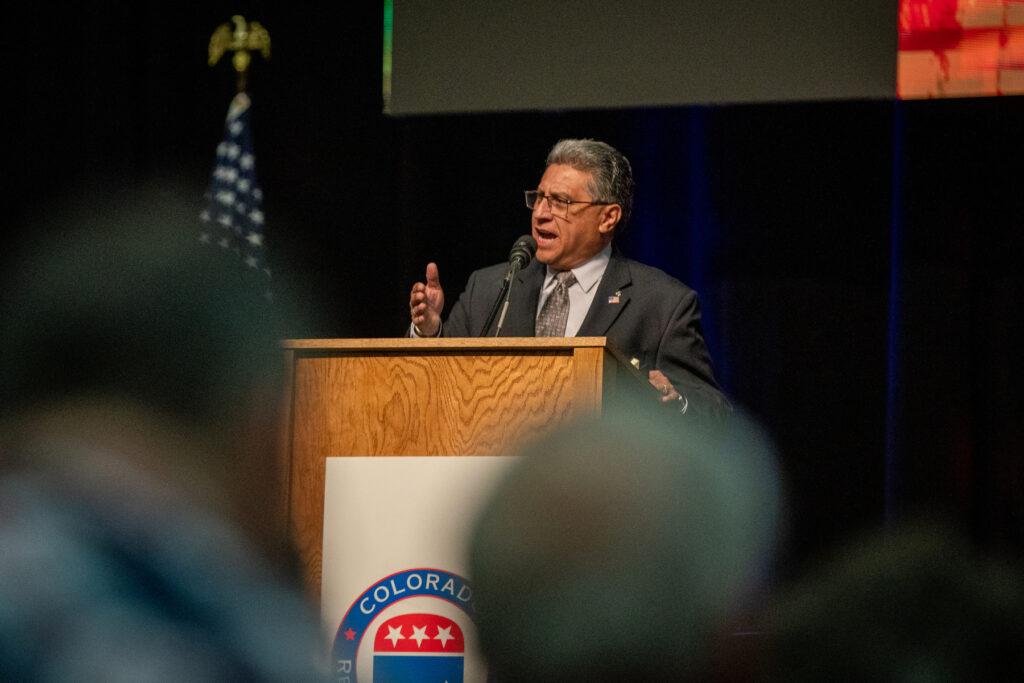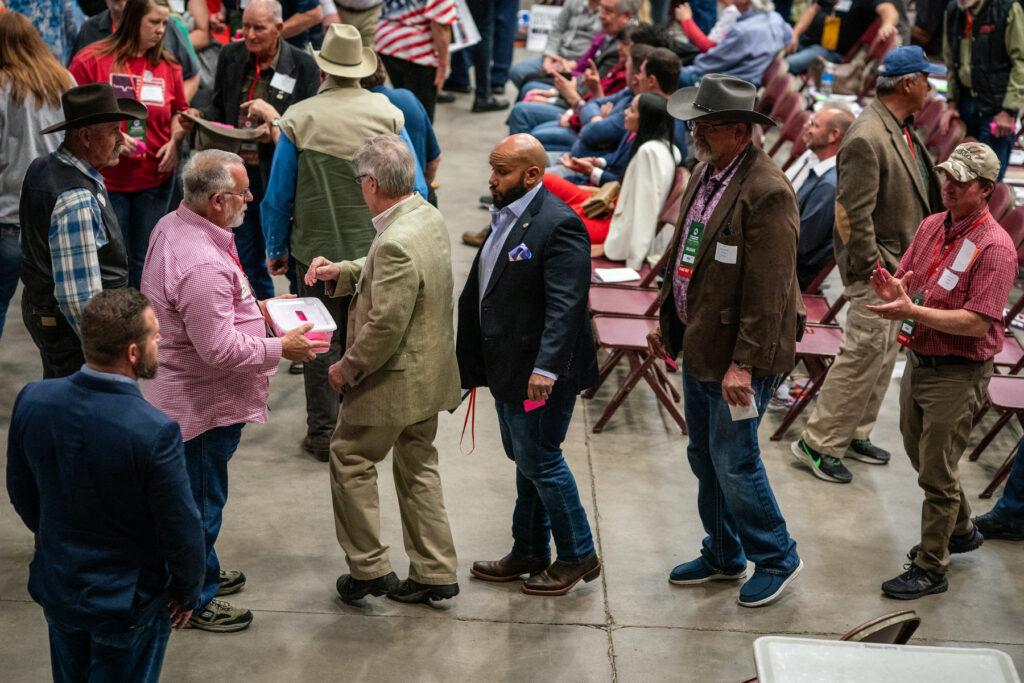
Six months on the job, especially when the job is as a U.S. Representative, is barely enough time to figure out where the bathrooms are, let alone do any significant work.
So, when it comes to the vacancy election in Colorado's 4th Congressional District, what will the winner be able to accomplish in their truncated term?
Some other Congressional short-timers had some ideas.
GOP Rep. Vincent Fong was sworn in earlier this month to fill the remainder of former House Speaker Kevin McCarthy’s term. His advice for whoever becomes Colorado’s newest member of Congress is pretty straightforward: focus on helping your community and “just try to get to know as many people as possible and ask for advice from everybody.”
Congresswoman Celeste Maloy, a Utah Republican elected to fill a vacancy about seven months ago, concurred, saying those relationships with other members have been “absolutely essential in helping me figure out where I need to be, what I need to be doing and how things work.”
Colorado's 4th district is holding this special election because its former congressman, Ken Buck, left office early. The winner will serve for six months, but the House will only be in session for about 45 days during that time.
Fong and Maloy both had some previous experience on Capitol Hill, both having worked as congressional staffers. Fong also served in his state legislature.
“It’s like going from high school to college,” explained Democratic Rep. Jennifer McClellan, who was a Virginia state Senator when she won a special election just over a year ago.
It helped to have the experience, but Congress is a whole other level.
“I think it's a fire hose for sure,” she said. Her advice to whoever wins in Colorado? Do your homework — “making sure that you get your committee assignment, really understand your committee and the work your committee is doing. Put a really good, strong staff in place to handle every aspect of the office and then trust them to do the job.”
The transition could be rougher for Colorado’s next member of Congress; none of the candidates in the special election have past legislative experience.
Republican Greg Lopez, who is favored to win given the lean of the district, has the most government experience, having served as mayor of Parker in the ‘90s. His last two bids for office were not for the legislative branch, but the executive, when he ran unsuccessfully for governor in 2018 and 2022.

Lopez pitched himself to the Republican vacancy committee as a placeholder candidate, someone who is not also seeking the full term next Congress.
“This is a temporary duty assignment. My nation has called and said, ‘We need someone that can step into the gap for six months,’” he told CBS Colorado’s Shaun Boyd. Lopez’s campaign did not respond to multiple interview requests from CPR News.
During the one broadcast debate Lopez has participated in, he said he planned to hit the ground running on issues important to the district, like border security.
“I want to make sure that we're there and we're going to be impactful. One (way to do that) is to look at, would it make sense to do an 18-month moratorium on the asylum seekers’ application process until we fix it?” he said.
The three-decade-long congressional stalemate over immigration is an issue that talented and experienced legislators have made little progress on, much less a short-term congress member. But Lopez isn't the only vacancy candidate promising big results in a short time.
“I think that we should hold that representative accountable,” said Democratic candidate Trisha Calvarese, “even if it is a six-month period, they should be working doggedly to make sure they're actually getting results for this district.”
Calvarese worked for the AFL-CIO and the U.S. Science Foundation, where she shaped messaging for bills like the Chips and Science Act. While she doesn’t have electoral experience, she argues the knowledge of Washington, D.C. she gained from those jobs would help her get things done.

“What I want to do is go into Washington and figure out how to move the ball forward, whether that's actually introducing legislation or something even as simple as writing a letter to the Department of Commerce,” she explained.
Unlike Lopez, Calvarese is running in both the special and the race for next term. So is Libertarian Hannah Goodman, who describes herself as a “hardcore constitutionalist liberty lover.“
Frank Atwood of the Approval Voting Party is the fourth candidate in the race. But he has made it clear he has no intention of winning, joking at a recent debate that his wife would leave him if he did (Atwood said entire goal in running is to raise support for adopting approval voting in Colorado elections.)
Goodman, on the other hand, is hopeful of her chances. She said as a Libertarian she could work with Republicans and Democrats. But most importantly, she said she’d show up for every vote during her limited time.
“Most of our sitting Congress people don't always show up to votes. [Rep. Lauren] Boebert misses them quite frequently. So, that's not representing the people who put you there to give them a voice,” Goodman explained.
Colorado Rep. Brittany Pettersen said those votes could be especially consequential, given that the new representative will be an additional vote in a narrowly divided Congress.
“It does impact the negotiations and what's able to happen. So yes, I’d say having one more Republican or Democrat on either side, it will definitely have an impact,” she said.
She also thinks expectations around legislation should be tempered, especially with a dearth of must-pass bills already on the docket between now and the election.
Still, there is one area where a new member, even for a short time, can make a difference: the help they offer to people back in the district.
“My advice would be: focus on hiring those people who are public servants (and) care about advocating for constituents and doing that casework because it really does help individual lives,” she said.
The congressional calendar may also help whoever wins the vacancy election.
The new Representative will likely be sworn in in July, but then the House will go into a five-week recess starting in August. That break could give the person time to build a team without also dealing with committee work and votes and set them up to make the most of their very short term.









